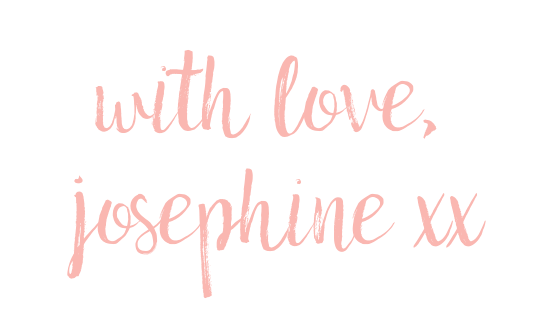Yoga for Menopause | Yoga Therapy
Every week, I teach a seniors class and have a class full of mostly women well into or past their menopausal years. Whilst there are still years away for me, it's an extremely interesting and topical subject for me as a yoga therapist surrounded by senior women students and interacting daily with my mother who is currently experiencing symptoms. I hope this is somewhat insightful to you, whether it's you or a family member going through the unpleasant symptoms of menopause.
SPECIFIC ISSUE - MENOPAUSE
Up to 70% of women experience menopausal symptoms during menopause which can last up to 10 years; although there are outliers which may extend beyond this duration. Menopause can start as early as 40 years but most commonly experience in mid 40’s or 50’s - with the most commonly sighted average being 51 years.
Menopause occurs because of the sharp decrease of estradiol and progesterone production by the ovaries. The rapid decrease in circulating estradiol levels at menopause impacts many tissues, from brain to skin. Whether directly related to the lowered levels of oestrogen or not (contradicting research results), many women claim to experience hot flushes and other common symptoms such as:
Breast tenderness
Headaches, dizziness
Lower sex drive
Fatigue
Dry skin, itchy skin
Weight gain
Vaginal dryness; discomfort during sex
Mild loss of bladder control, frequent urinary urgency, incontinence
Disturbed sleeping, night sweats
Psychological symptoms e.g. depression, anxiety, inability to concentrate, mood swings, loss of self-esteem
THE BENEFITS OF YOGA FOR THIS ISSUE (SYMPTOM CONTROL)
In one study, yoga cut hot flashes by 31% and other research has found that regular yoga practise improved libido, mood and craving control. [1]
Many menopausal women agree that heat, anxiety, stress and fatigue often bring on or intensify hot flushes. Gentle yoga poses and practising mindfulness meditation can help sedate the sympathetic nervous system, in turn, allowing the parasympathetic nervous system (PNS) to take over. The PNS slows the heart rate and brings the body’s systems back into balance.
Gentle inversion poses can sometimes help with insomnia to alleviate anxiety. When done with restorative poses, the body can feel at rest.
Heart/Chest opening poses, such as Bridge pose or Supported Reclined Bound Angle, can help with lifting the spirit and opening up the emotional blockages such as depression and mood swings, with the overall effect of rejuvenation and fighting off fatigue.
Root lock (Mula Bandha) helps regain the control of the urinary urgency and frequencies. Even just the bringing awareness to muscle groups and help manage the symptoms.
The breath work and meditation in Biblical truths, will help with concentration and re-centering the mind's focus, lifting the ‘fogginess’ often experienced in hormonal fluctuations.
Biblical meditations on what The Word has to say about dealing with each of the menopausal symptoms is the most powerful tools in managing menopause.
CONTRAINDICATIONS
If professional medical practitioner has advised against yoga.
If there are any sharp pains while doing yoga poses, stop immediately. Consult your yoga therapist to ensure the poses have been done correctly and if the sharp pain persists every time you get into a pose, stop and seek medical practitioner’s advice.
If suffering from degenerative bone dysfunctions, such as osteoporosis and/or osteoarthritis, or spinal dysfunctions, such as kyphosis or lordosis, ensure there is physician’s clearance before doing yoga. Pay kind attention to reclining poses and let yoga instructor know of any known pains.
If there are any blood pressure issues, take care in getting into poses wear the head is positioned below the heart vertically, e.g. forward fold and downward facing dog.
15-30 MINUTE FLOW
Easy seated (10 relaxed breath cycles, 3 breath cycles with Root Lock)
Mountain Pose
Forward Fold
Mountain pose with Cactus Arms -> Mini back bend
Childs Pose
Downward Facing Dog
Bridge
Plow/Shoulder stand/Legs up the wall
Happy Baby
Reclined Spinal Twist / Windshield Wipers with bent knees
Supported Reclined Bound Angle Pose
SOURCES & RESEARCH
http://www.prevention.com/fitness/yoga/10-yoga-poses-to-relieve-menopause-symptoms
http://www.yogajournal.com/article/health/the-graceful-change/
http://www.34-menopause-symptoms.com/articles/qa-what-happens-to-my-hormones-during-menopause.htm
http://www.huffingtonpost.com/2013/04/05/yoga-for-menopause-7-pose_n_2991865.html
http://www.fitnessnetwork.com.au/resources-library/yoga-and-menopause
*Disclaimer:
These suggestions offered on www.lovejosephine.com are intended to complement and support the medical treatment targeting the specified issue, with the goal of enhancing the well-being of the patient. It is not intended to replace medical recommendations by your medical practitioners. It is highly recommended and, in most cases, essential that you stay compliant to the treatment advice given by a western medical professional. Prior to starting any physical programs, it is advised to get clearance from a medical professional. Upon medical clearance, the suggestions and educational resources offered on www.lovejosephine.com are meant to be observed and used in conjunction with medical treatment but not replace medical treatment.

